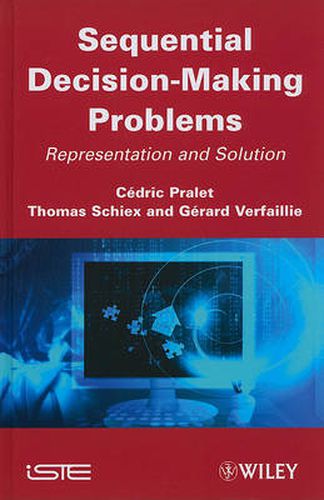Readings Newsletter
Become a Readings Member to make your shopping experience even easier.
Sign in or sign up for free!
You’re not far away from qualifying for FREE standard shipping within Australia
You’ve qualified for FREE standard shipping within Australia
The cart is loading…






Numerous formalisms have been designed to model and solve decision-making problems. Some formalisms, such as constraint networks, can express ‘simple’ decision problems, while others take into account uncertainties (probabilities, possibilities), unfeasible decisions, and utilities (additive or not). In the first part of this book, we introduce a generic algebraic framework that encompasses and unifies a large number of such formalisms. This formalism, called the Plausibility-Feasibility-Utility (PFU) framework, is based on algebraic structures, graphical models, and sequences of quantifications. This work on knowledge representation is completed by a work on algorithms for answering queries formulated in the PFU framework. The algorithms defined are based on variable elimination or tree search, and work on a new generic architecture for local computations called multi-operator cluster DAGs.
$9.00 standard shipping within Australia
FREE standard shipping within Australia for orders over $100.00
Express & International shipping calculated at checkout
Numerous formalisms have been designed to model and solve decision-making problems. Some formalisms, such as constraint networks, can express ‘simple’ decision problems, while others take into account uncertainties (probabilities, possibilities), unfeasible decisions, and utilities (additive or not). In the first part of this book, we introduce a generic algebraic framework that encompasses and unifies a large number of such formalisms. This formalism, called the Plausibility-Feasibility-Utility (PFU) framework, is based on algebraic structures, graphical models, and sequences of quantifications. This work on knowledge representation is completed by a work on algorithms for answering queries formulated in the PFU framework. The algorithms defined are based on variable elimination or tree search, and work on a new generic architecture for local computations called multi-operator cluster DAGs.